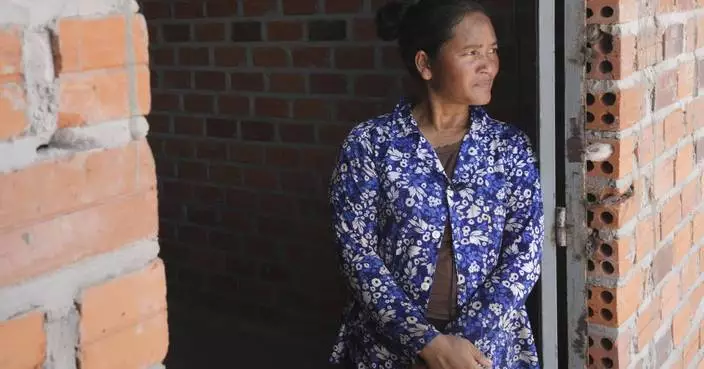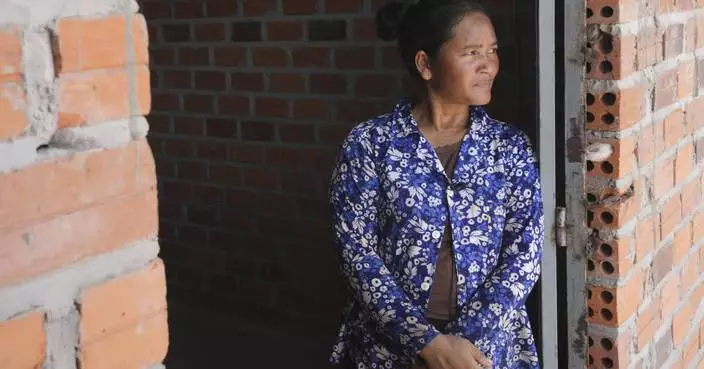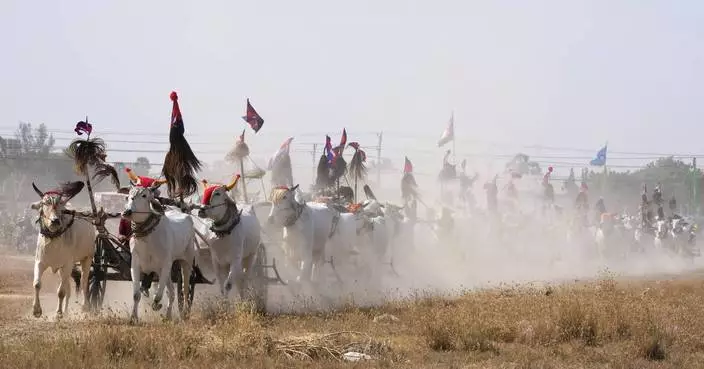Doctors are now observing the condition of the twins before deciding what to do. :'(
On 3 March, a Cambodian mum gave birth to conjoined female twins with one body and two heads, who they are struggling to survive.
The infant weighs 15lbs with only one of the head movable and is being fed via tubes. They are receiving all-day care provided by medical staff in the remote Siem Reap province in Cambodia.
Their mum Ket May, 35, who feels extremely upset and is now recovering from her c-section. She didn't know the conjoined baby before it was born because she could not afford a £10 ultrasound scan.
"My feelings are confused. Yes, I'm happy to have a baby girl but I am distressed, too. I do not know if she will survive. We don't know what to do," she said.
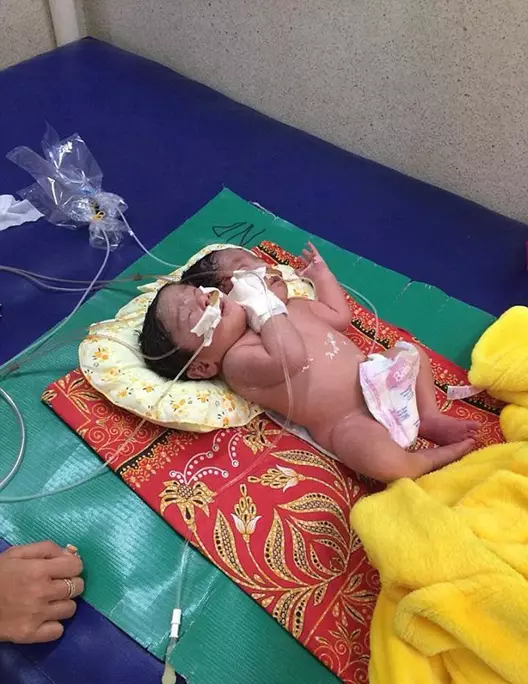
Doctors helped Ket to do a c-section when the infant was born feet first. Ket and her husband Kam Sary, 40, are staying at Bopha Children's Hospital with the baby.
The father said, "I want to be happy but I am also upset. I don't know why this happened. The baby is not strong."
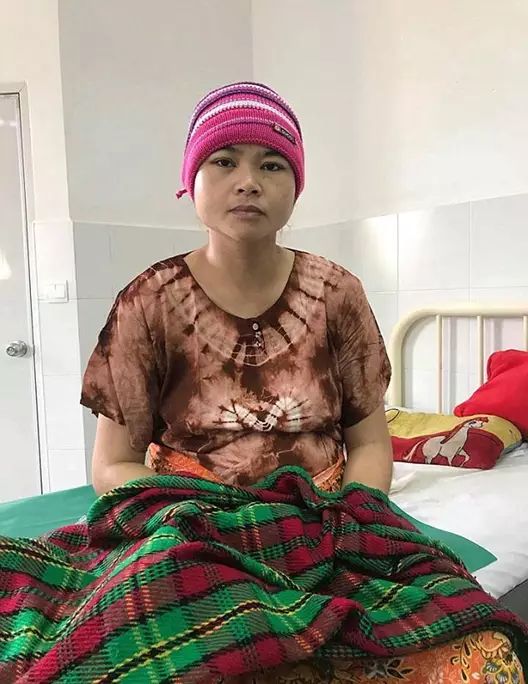
The parents of three revealed that not only them, villagers at where they are living has limited access to normal prenatal checks because those checks are unaffordable to them.
Doctors are now observing the condition of the twins before deciding what to do. Around one in 200,000 babies are born conjoined. About 40-60% of them got stillborn while 35% survive only for a day.

A hospital spokesman said, "The baby has a very weak heartbeat. The mother is also exhausted from the birth. She is also shocked."
The birth of the baby shocked people at the hospital since they had never seen this or dealt with the condition before.
The conjoined is not allowed to be taken home and the hospital said they will be cautious about the health of the girl and wait for specialists.
PHNOM PENH, Cambodia (AP) — Chinese Foreign Minister Wang Yi arrived in Cambodia on Sunday for a three-day official visit to reaffirm ties with Beijing’s closest ally in Southeast Asia. His visit is the last stop on a three-nation regional swing that also took him to Indonesia and Papua New Guinea.
He is visiting amid foreign concerns about two big Chinese-funded projects in Cambodia — a planned canal and a naval base — that critics allege could aid Beijing’s strategic military interests in Southeast Asia.
China is Cambodia’s most important ally and benefactor, with strong influence in its economy. That is illustrated by numerous Chinese-funded projects — particularly infrastructure, including airports and roads, but also private projects such as hotels, casinos and property development. More than 40% of Cambodia’s $10 billion in foreign debt is owed to China.
Wang is scheduled to have separate meetings with Prime Minister Hun Manet and his father, Hun Sen, now serving as president of the Senate after serving for 38 years as Cambodia’s head of government until he stepped down last year to be succeeded by his son. Wang was also granted a royal audience with King Norodom Sihamoni.
Hun Manet has shown no sign of deviating from his father’s pro-Beijing foreign policy. In August 2023, Wang visited Cambodia just days after Hun Sen announced he would step down as prime minister in favor of his eldest son.
Beijing’s support allows Cambodia to disregard Western concerns about its poor record on human and political rights, and in turn Cambodia generally supports Beijing’s positions on foreign policy issues such as its territorial claims in the South China Sea.
Cambodia has recently reiterated its determination to go ahead with the Chinese-financed 180-kilometer (112-mile) long, $1.7 billion Funan Techo Canal project across four provinces in the southern part of the country to connect the capital, Phnom Penh, to the Gulf of Thailand.
The plan has raised concern from neighboring Vietnam, where some scholars speculated the 100-meter (330-foot) -wide and 5.4 meter (18-foot) -deep canal could make it easier for China to send military forces southward, close to Vietnam’s southern coast. There are often frosty relations between Vietnam and its massive northern neighbor China, which aggressively claims maritime territory claimed by Hanoi and in 1979 staged a brief invasion.
The United States has also weighed in on the project, appealing for transparency on the part of Cambodia's government. Wesley Holzer, a U.S. Embassy spokesperson in Phnom Penh, was quoted as telling the Voice of America that “the Cambodian people, along with people in neighboring countries and the broader region, would benefit from transparency on any major undertaking with potential implications for regional water management, agricultural sustainability, and security,”
Hun Manet, speaking Thursday to government officials and villagers in southern Takeo province, dismissed the Vietnamese concern and vowed to push forward with the project, which he said would provide a huge benefit to Cambodia.
China also is involved with another project causing foreign concern, its Ream Naval Base on the Gulf of Thailand , which the United States and some international security analysts say is destined to serve as a strategic outpost for Beijing’s navy.
The Ream base initially attracted attention in 2019 when The Wall Street Journal reported that an early draft of an agreement seen by U.S. officials would allow China 30 years' use of the base, where it would be able to post military personnel, store weapons and berth warships.
Hun Sen in response repeatedly denied there was such an agreement, pointing out that Cambodia’s constitution does not allow foreign military bases to be established on its soil and declaring that visiting ships from all nations are welcome.
The base is situated on the Gulf of Thailand, adjacent to the South China Sea, where China has aggressively asserted its claim to virtually the entire strategic waterway. The U.S. has refused to recognize China’s sweeping claims and routinely conducts military maneuvers there to reinforce its status as international waters.
On Dec. 7, two Chinese naval vessels became the first ships to dock at a new pier at the base, coinciding with an official visit to Cambodia by China’s top defense official.
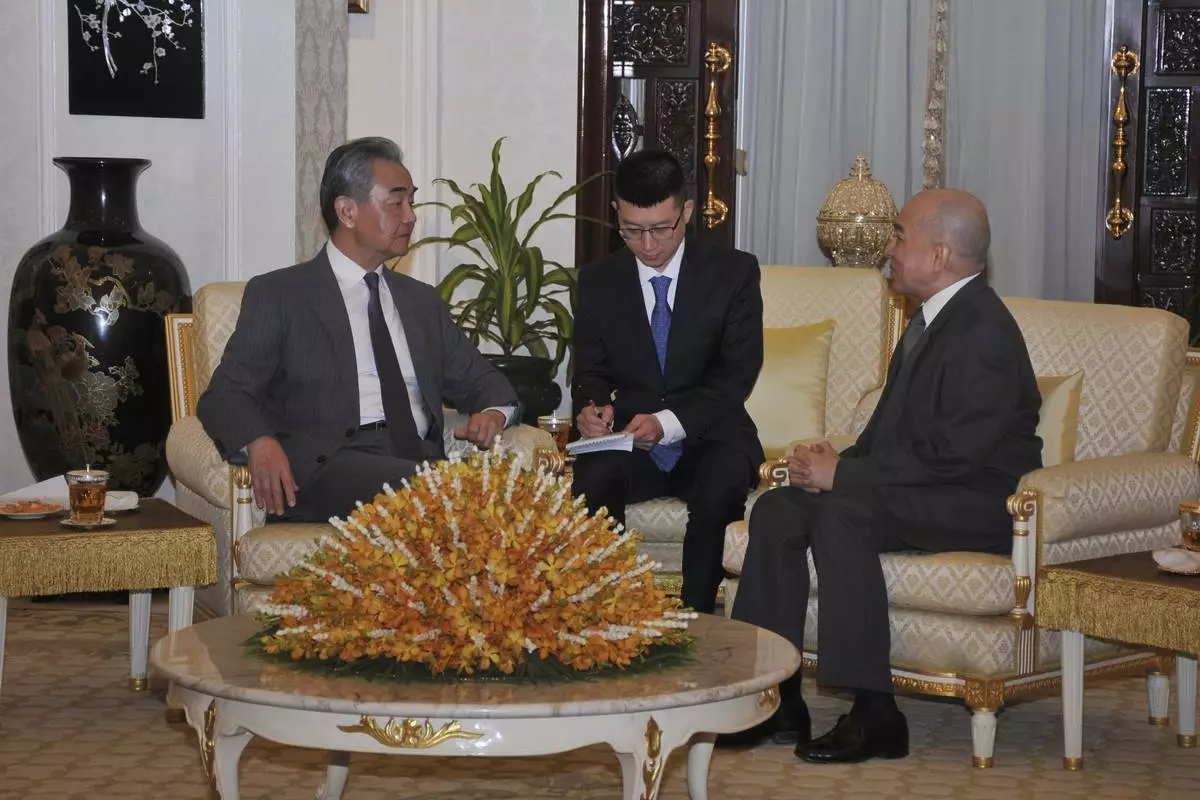
In this photo released by Agence Kampuchea Press (AKP), Chinese Foreign Minister Wang Yi, left, is welcome meeting by Cambodia's King Norodom Sihamoni, right, in Royal Palace, in Phnom Penh, Cambodia, Sunday, April 21, 2024. Wang Yi, arrived Cambodia to mark his 3 days official visit (21-23 April) Cambodia to reaffirm his country's commitment and to boost the already firmly tied to southeast Asian country, twice visited in the last eight months. (AKP via AP)
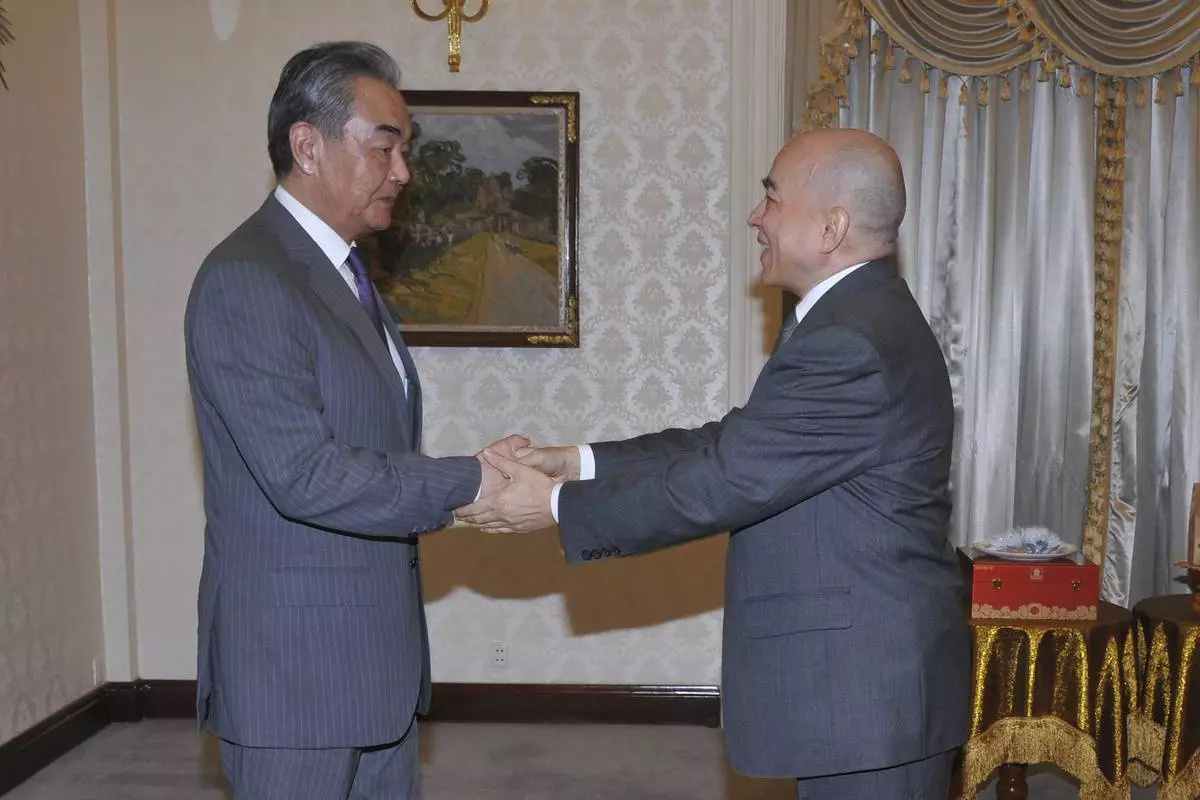
In this photo released by Agence Kampuchea Press (AKP), Chinese Foreign Minister Wang Yi, left, greets with Cambodia's King Norodom Sihamoni, right, in Royal Palace, in Phnom Penh, Cambodia, Sunday, April 21, 2024. Wang Yi, arrived Cambodia to mark his 3 days official visit (21-23 April) Cambodia to reaffirm his country's commitment and to boost the already firmly tied to southeast Asian country, twice visited in the last eight months. (AKP via AP)
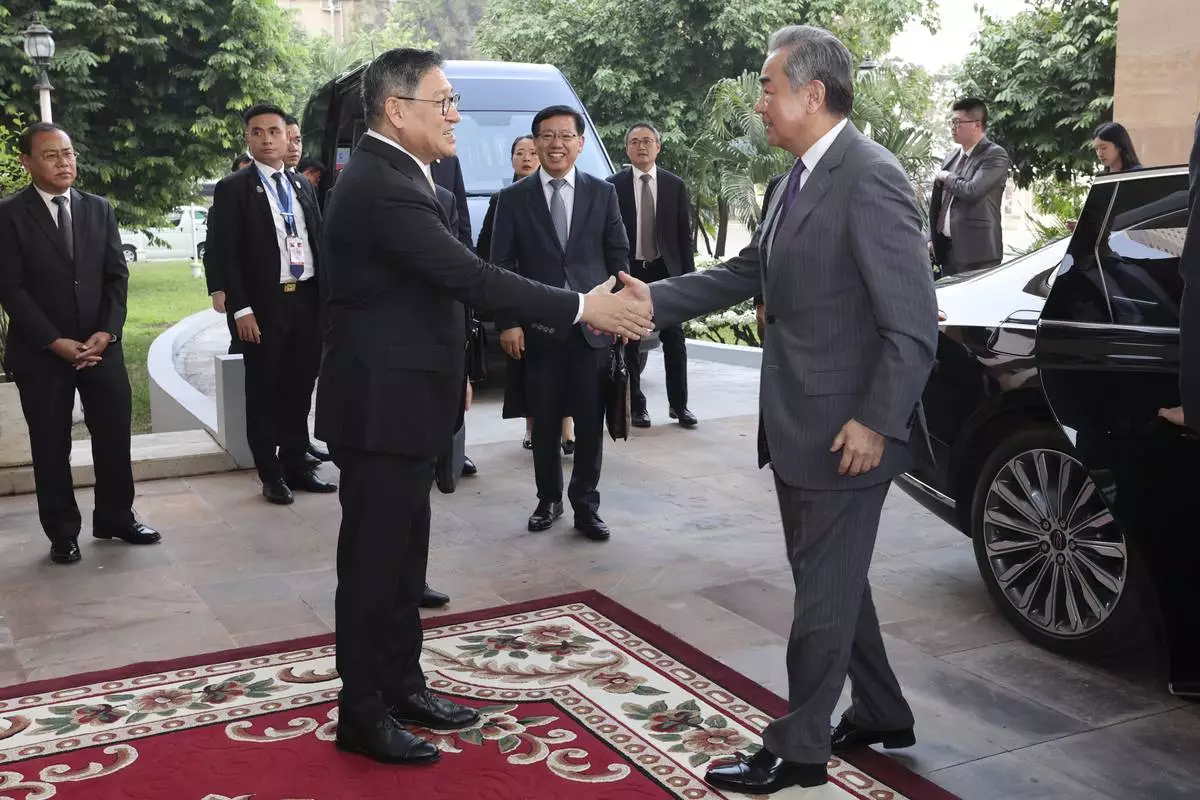
In this photo released by Agence Kampuchea Press (AKP), Chinese Foreign Minister Wang Yi, front right, greets with Cambodia's Foreign Minister, SOK Chenda Sophea, front left, in Phnom Penh, Cambodia, Sunday, April 21, 2024. Wang Yi, arrived Cambodia to mark his 3 days official visit (21-23 April) Cambodia to reaffirm his country's commitment and to boost the already firmly tied to southeast Asian country, twice visited in the last eight months. (AKP via AP)
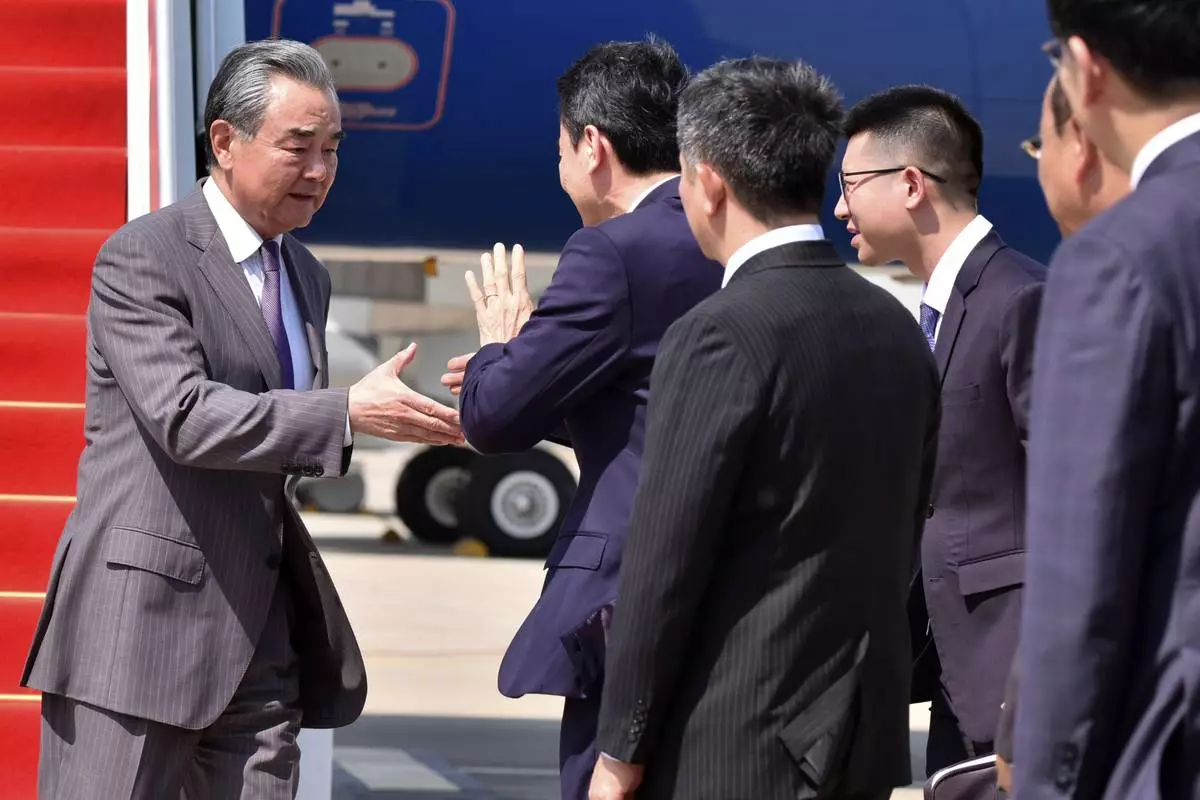
In this photo released by Agence Kampuchea Press (AKP), Chinese Foreign Minister Wang Yi, left. is greeted on his arrival at Phnom Penh International Airport in Phnom Penh, Cambodia, Sunday, April 21, 2024. (AKP via AP)
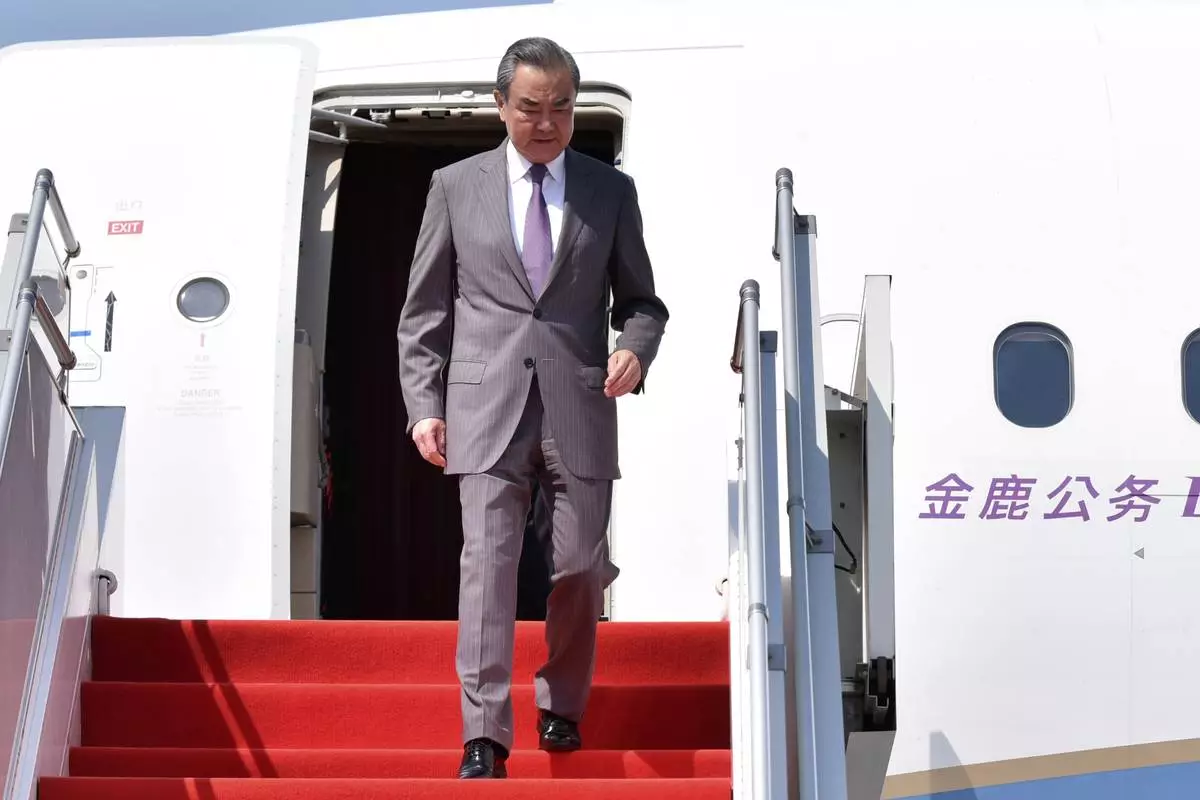
In this photo released by Agence Kampuchea Press (AKP), Chinese Foreign Minister Wang Yi arrives at Phnom Penh International Airport in Phnom Penh, Cambodia, Sunday, April 21, 2024. (AKP via AP)
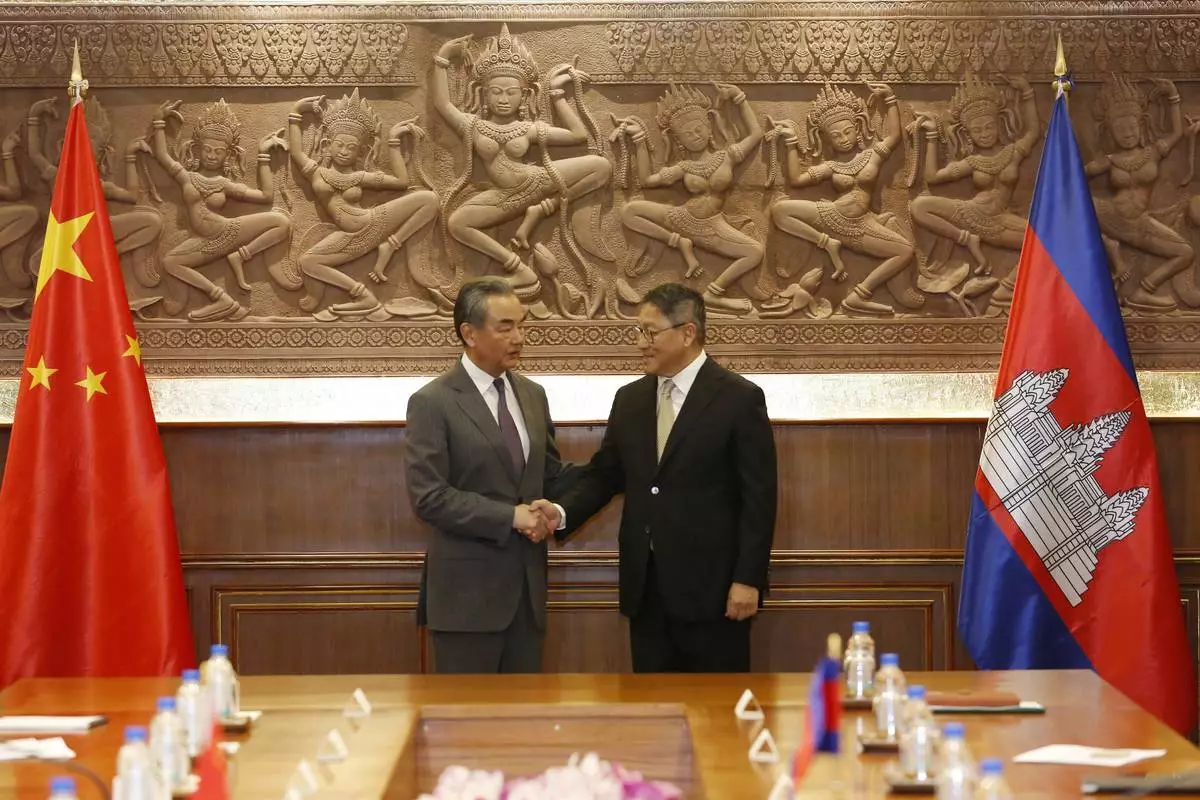
In this photo released by Agence Kampuchea Press (AKP), Chinese Foreign Minister Wang Yi, left, greets with Cambodia's Foreign Minister, SOK Chenda Sophea, right, in Phnom Penh, Cambodia, Sunday, April 21, 2024. Wang Yi, arrived Cambodia to mark his 3 days official visit (21-23 April) Cambodia to reaffirm his country's commitment and to boost the already firmly tied to southeast Asian country, twice visited in the last eight months. (AKP via AP)













